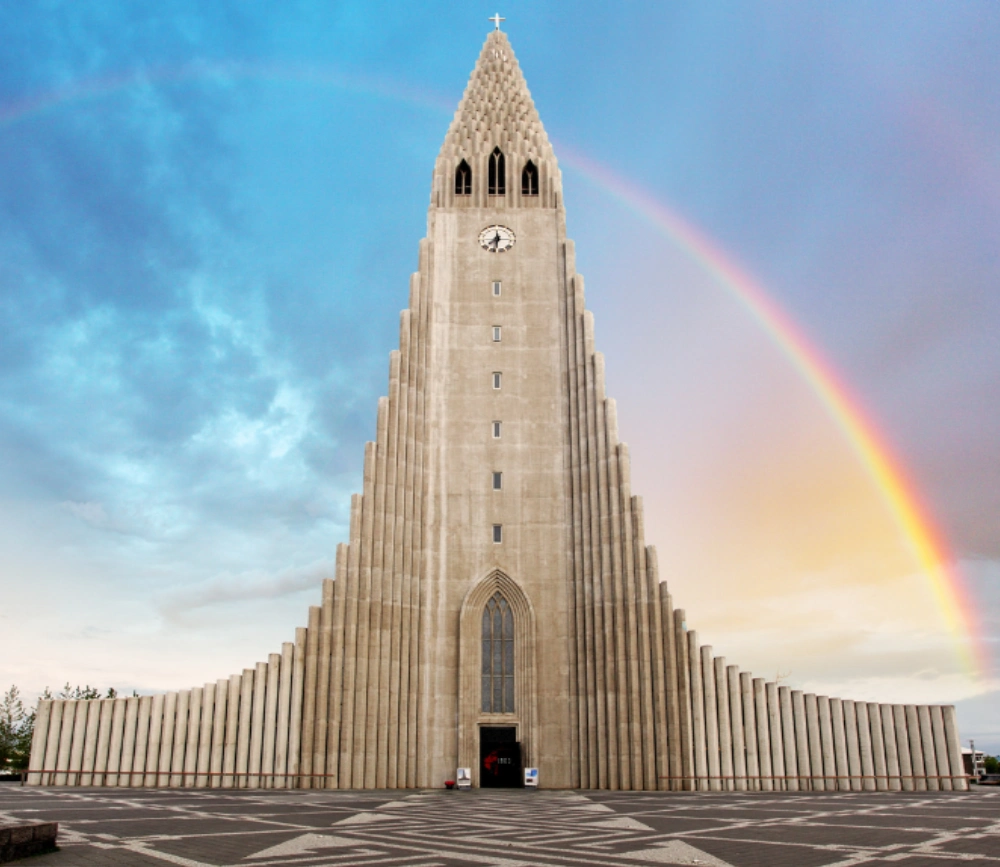Study in
Iceland
Study in
Iceland
Experience Innovation and Education Amidst Nature's Wonders
Iceland, an island nation in the North Atlantic, is a member of the European Economic Area (EEA) and the Schengen Area. Although not part of the European Union, Iceland offers access to European higher education standards and benefits for mobility. It shares maritime borders with Greenland, Norway, and the UK.
Iceland is renowned for its geothermal activity, volcanic landscapes, and commitment to sustainable living. Iceland's forward-thinking economy and high quality of life are recognised worldwide.
The country has a thriving economy driven by renewable energy, IT, biotechnology, fisheries, and tourism. Skilled labour shortages in healthcare, technology, engineering, and science present international graduates with career and residency opportunities after their studies.
Why Study in Iceland?
Studying in Iceland offers the opportunity to learn in a peaceful, innovative society with a strong academic tradition. Icelandic universities prioritise research, critical thinking, and small class sizes, resulting in high student engagement.
Top reasons to study in Iceland:
- Research-based academic environment
- English-taught programs in diverse fields
- Beautiful, safe, and eco-conscious living
- Access to EEA employment markets
- Low or no tuition at public universities
Study in Iceland for Indian Students
Indian students are discovering Iceland as a gateway to world-class European education. Programs in science, environmental studies, sustainable energy, and technology are highly sought after. Iceland offers a supportive community, affordable education, and the chance to experience a uniquely peaceful and safe society.
Support for Indian students includes:
- Assistance with housing and integration
- Access to part-time jobs
- Opportunities for research and internships
- Easy travel within the Schengen Area
Study Abroad in Iceland: Education System
Higher education in Iceland is offered by:
- Public Universities (tuition-free or low-cost)
- Private Institutions
All institutions follow the Bologna Process, offering internationally recognised Bachelor's, Master's, and PhD degrees. The academic year runs from September to May.
Study in Iceland for International Students' Requirements
To apply, students must provide:
- Educational certificates (10+2 or Bachelor's)
- English language proficiency (IELTS, TOEFL, or equivalent)
- Statement of purpose
- Letters of recommendation
- Valid passport
- Proof of funds and insurance
Each university may have specific entry criteria and application platforms.
Study Nursing in Iceland for International Students
Nursing is a respected and in-demand profession in Iceland. While Icelandic universities typically offer nursing programs, some institutions also provide preparatory language programs as a prerequisite for admission to these programs.
Internationally educated nurses may also apply for recognition of qualifications and continue with further studies or training.
Study Nursing in Iceland in English
Although limited, some universities may offer parts of the nursing curriculum in English, especially at the postgraduate level. Nursing students require Basic Icelandic skills for clinical training.
Study Computer Science in Iceland in English
Computer Science is a growing field in Iceland, with several Master's programs taught in English. Topics include software development, data analytics, machine learning, and more. The tech sector offers ample opportunities for internships and jobs.
Study Master's in Iceland
Master's programs typically last 2 years. Popular areas include:
- Environmental Science
- Renewable Energy
- Public Health
- Marine Biology
- Computer Science
Universities offering English-taught master's programs include the University of Iceland and Reykjavik University.
Study Computer Science in Finland in English
Computer Science is a top choice for international students in Finland. Programs in Artificial Intelligence, Software Engineering, Cybersecurity, and Data Science are available in English. Finland's thriving tech sector makes it a strong launchpad for IT careers.
Can I Study in Iceland Without IELTS?
Yes, some institutions may waive IELTS if:
- Your prior education was in English
- You submit alternative test scores (TOEFL, Duolingo, etc.)
- You pass the university's internal language assessment
Master's programs are designed to develop critical thinking, innovation, and global perspectives.
How Much Does It Cost to Study in Iceland?
Public universities in Iceland do not charge tuition fees but require an annual registration fee:
- Registration fee: €100–€250/year
- Private institutions: €3,000–€8,000/year
Living expenses: Approx. €800–€1,200/month (housing, food, transport)

Can I Study in Iceland Without IELTS?
Yes, some institutions may waive IELTS if:
- Your prior education was in English
- You submit alternative test scores (TOEFL, Duolingo, etc.)
- You pass the university's internal language assessment
How Much Does It Cost to Study in Iceland?
Public universities in Iceland do not charge tuition fees but require an annual registration fee:
- Registration fee: €100–€250/year
- Private institutions: €3,000–€8,000/year
Living expenses: Approx. €800–€1,200/month (housing, food, transport)
Can I Study in Iceland Without IELTS?
Yes, some institutions may waive IELTS if:
- Your prior education was in English
- You submit alternative test scores (TOEFL, Duolingo, etc.)
- You pass the university's internal language assessment
How Much Does It Cost to Study in Iceland?
Public universities in Iceland do not charge tuition fees but require an annual registration fee:
- Registration fee: €100–€250/year
- Private institutions: €3,000–€8,000/year
Living expenses: Approx. €800–€1,200/month (housing, food, transport)

How to Get PR in Iceland After Studying
Upon graduation, international students qualify for a temporary residence permit to stay back and look for jobs. Once employed, they may transition to a work permit. After four years of continuous legal residence (including study and work), they can apply for permanent residence.
Iceland Study Abroad Agency in India
KCR CONSULTANTS helps Indian students explore educational pathways in Iceland. From choosing a university to navigating the visa process, our team provides personalised and reliable support.
Study in Iceland Consultants
Our expert consultants offer the following:
- Admission Counselling
- Scholarship and documentation help
- Visa and accommodation assistance
- Career and PR guidance
Student Visa for Iceland: A Step-by-Step Guide
Non-EEA students must obtain a residence permit for their studies.
Application process:
1.Get admission to an Icelandic university
2.Gather documents
- Passport copy
- Admission letter
- Proof of housing
- Proof of financial means (€1,200/month for 9 months)
- Health insurance
3.Apply online via the Iceland Directorate of Immigration website
4.Submit biometrics at the Icelandic embassy or VFS office
Students can work up to 15 hours/week and apply for a job-seeking visa post-graduation.
Conclusion
With a unique blend of academic excellence, environmental consciousness, and high standards of living, Iceland stands out as a rewarding study destination. Its universities, career pathways, and welcoming society make it ideal for ambitious international students.
Trust KCR CONSULTANTS to be your guide in beginning a life-changing academic journey in Iceland.
We are here to help you!
Open from 8am - 8pm Monday - SATURDAY
Fill out the form below to receive expert advice and guidance.

